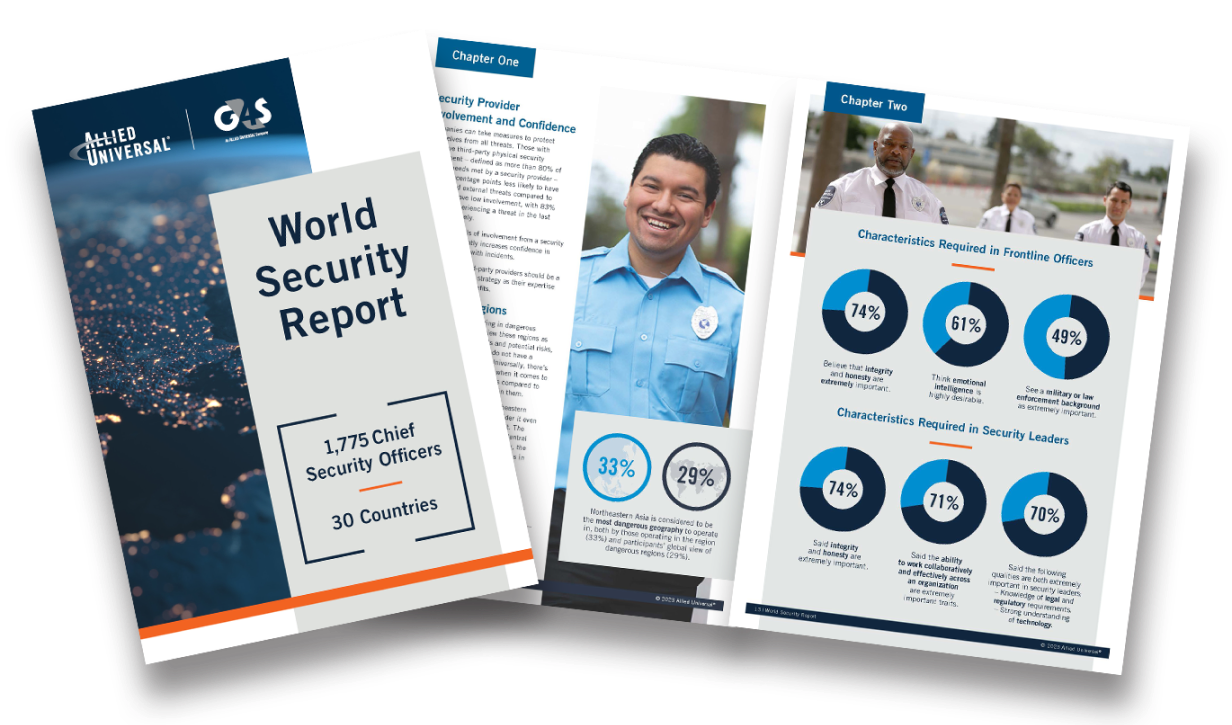Filter results by:
Don’t sacrifice experience and efficiency simply because you have short-term security needs.
You have weighed your options carefully and selected your preferred contractor. Now what?
The RFP process will help you establish specific performance standards appropriate for your organization, and to select the security officer
Choosing the right security officer service provider is a decision that will significantly affect the safety and security of your organization.
When choosing the mix of security elements needed to protect your campus you must also think about the inevitable: your budget. With security pressures rising and budgets shrinking even faster, now is the time to examine how supplementing your security team with contracted staff can help keep your campus safer and security program affordable.
Engaging the right security partner is critical for maintaining a secure environment in a hospital or healthcare facility.
Visibility is a powerful crime deterrent. By their presence alone, uniformed patrol officers can help enhance your employees’ safety and reduce the risk of vandalism or theft on your property.
Our country’s police departments are under immense pressure to keep crime rates low despite whittled-down budgets and a reduction in manpower.
All security programs are not the same. Your security provider can have a significant impact on how safe your residents feel, your visitors’ first impression of your community and even your home values.
Construction projects can be a major disruption to your business and cause significant security concerns for tenants and visitors.
Short and long-term healthcare centers, skilled nursing facilities and assisted living environments present unique security challenges. Are you getting a solution tailored to your needs and requirements?
As homeowners volunteer to be a part of their community associations, their range of knowledge on a variety of topics must immediately grow.
Specifying the quantity and type of uniform you want your security officers to wear will lead to more transparent pricing as well as prepare you for a smoother transition.
Does your security partner realize what’s at stake in your business? Do they view their role as not only protecting your people and your assets, but ultimately, your brand?
Employee hiring and screening are vital support functions for any company, but they may be the most important functions for a security company.
Business and recreational travelers demand safe and secure hotel accommodations and responsive and friendly customer service.
Does this scenario sound familiar? You relied on your security services provider to hire the best staff and ensure everyone received the right training.
Emergency preparation and planning is important in any facility. However, the need is heightened in commercial real estate because of the potential for large numbers of people to be involved.
Property managers at residential communities wear a lot of hats from filling vacancies and negotiating and enforcing leases, to maintaining the building and property, and securing the premises.
Organizations of all sizes and types, from Fortune 500 companies to grass-roots non-governmental organizations, periodically turn to strategic planning to reconnect with their core values.










